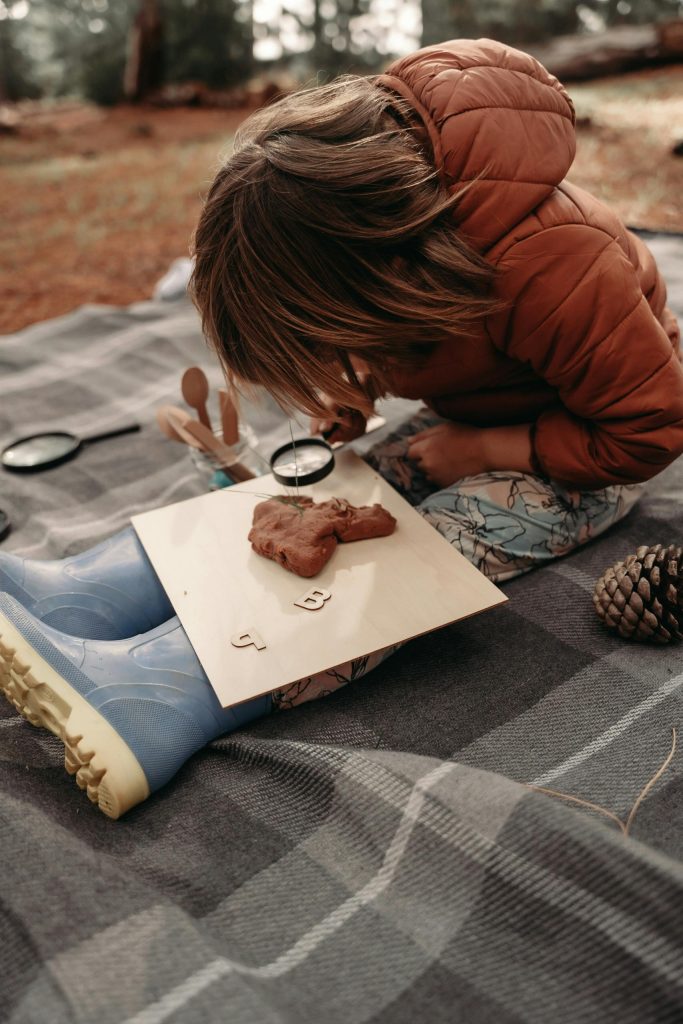Curious and science-minded children explore the environment and become eager to learn from every situation when and where ever it possible. Curiosity is the driving force behind learning, discovery, and innovation. Knowing the theme, parents can create suitable environment and encourage children to use their potential.

Table of Content
- The Nature of Curiosity to be Curious and Science-minded
- Factors That Encourage to be Curious and Science-minded
- How to Sustain a Child’s Scientific Mindset
- Conclusion on to be Curious and Science-minded
Curious and science-minded children explore the environment and become eager to learn from every situation when and where ever it possible. Curiosity is the driving force behind learning, discovery, and innovation. Knowing the theme, parents can create suitable environment and encourage children to use their potential.
Children are naturally inquisitive, always seeking to understand the world around them. Developing a scientific mindset from an early age not only enhances their problem-solving abilities but also prepares them for future careers in science, technology, engineering, and mathematics (STEM). Understanding how children become curious and science-minded can help parents, educators, and society foster an environment that nurtures their potential.
The Nature of Curiosity to be Curious and Science-minded
Curiosity is an innate trait that fuels a child’s desire to explore, experiment, and ask questions. It is evident from infancy when babies reach for objects, observe movements, and respond to stimuli. This curiosity, if properly nurtured, can grow into a lifelong love for scientific inquiry.
Factors That Encourage to be Curious and Science-minded
- Encouraging Questions and Exploration
Children naturally ask questions about everything they see, hear, or experience. Parents and teachers can encourage this curiosity by responding with enthusiasm, providing thoughtful explanations, and guiding them toward finding answers.
- Curious and Science-minded Hands-on Learning and Experimentation
Experiential learning is one of the best ways to develop a science-minded child. Simple experiments, nature walks, and interactive science kits allow children to test hypotheses, observe outcomes, and draw conclusions.
- Exposure to Science in Everyday Life
Science is everywhere, from cooking and gardening to weather patterns and animal behavior. Engaging children in everyday science-related activities helps them connect theoretical concepts to real-world applications.
- Reading and Storytelling to be Curious and Science-minded
Books and stories about science, inventors, and discoveries ignite curiosity. Reading biographies of scientists or engaging with fictional stories that incorporate scientific principles can make science more relatable and exciting.
- Encouraging Creativity and Critical Thinking to be Curious and Science-minded
Science is not just about memorizing facts; it involves creativity and critical thinking. Allowing children to solve problems on their own, build models, or create simple inventions fosters their analytical skills and imaginative abilities.
- Providing STEM Toys and Tools
Toys like building blocks, chemistry sets, and coding games stimulate curiosity and introduce scientific principles in an engaging way. These tools make learning fun and interactive, helping children develop problem-solving skills.
- Role Models and Real-Life Inspiration to be Curious and Science-minded
Children are inspired by role models. Meeting scientists, visiting science museums, or watching documentaries about space exploration, robotics, and medical discoveries can spark their interest in scientific fields.
- Supportive Learning Environments
Schools and homes that encourage exploration, experimentation, and questioning help children feel safe and excited about learning. Teachers and parents should create environments where mistakes are seen as learning opportunities rather than failures.
How to Sustain a Child’s Scientific Mindset
- Encourage Persistence and Resilience
Scientific discoveries are often the result of trial and error. Teaching children to embrace failures as part of the learning process helps them develop resilience and perseverance.
- Engage in Science Discussions to be Curious and Science-minded
Regular discussions about scientific discoveries, environmental changes, and technological advancements keep children interested in science. Encouraging them to think critically about news articles or research findings strengthens their analytical skills.
- Foster a Growth Mindset
Teaching children that intelligence and abilities can develop with effort encourages them to take on challenges and continue learning. A growth mindset helps them remain curious and open to new knowledge.
- Encourage Collaboration and Teamwork
Science often involves collaboration. Group activities, science fairs, and teamwork-based projects teach children how to work together to solve problems and generate new ideas.
- Support Their Interests and Passions
Every child is unique. Whether they love astronomy, marine biology, or physics, supporting their specific interests helps them stay engaged and motivated to learn more. If you want learn more Read here.
Conclusion on to be Curious and Science-minded
Children have an innate curiosity that, when nurtured, can grow into a lifelong passion for science. By encouraging questioning, providing hands-on experiences, and creating supportive learning environments, parents and educators can help shape the next generation of scientists, inventors, and innovators. The future of scientific advancement depends on fostering the curiosity of young minds today. If you need more information Click here.
I have been greatly helped.